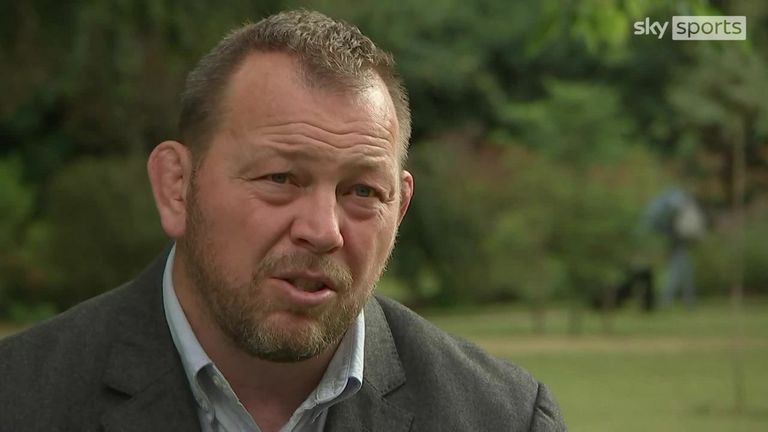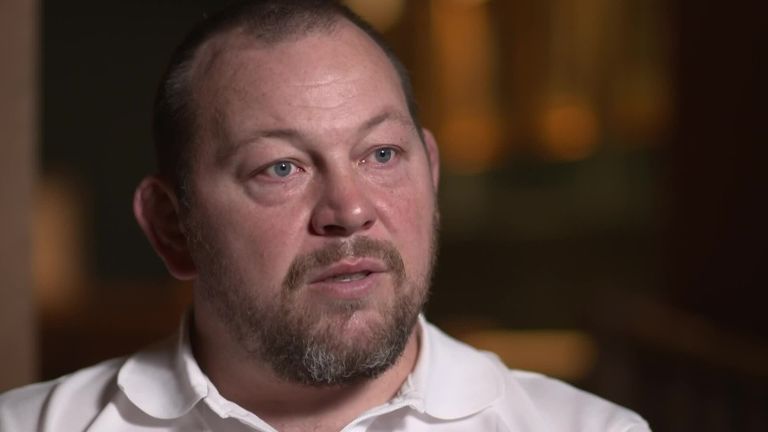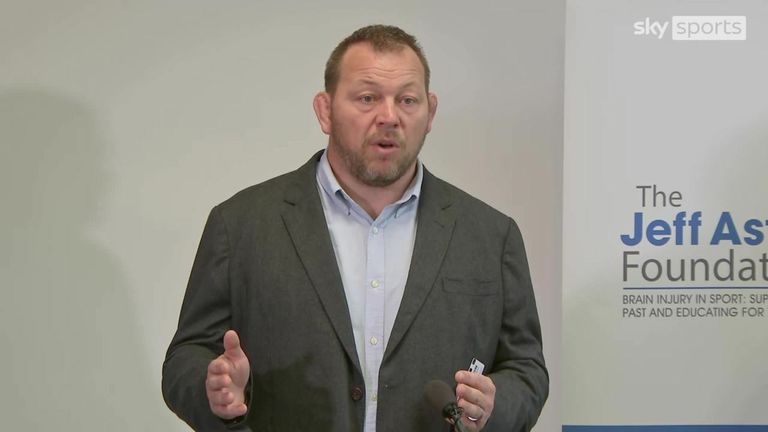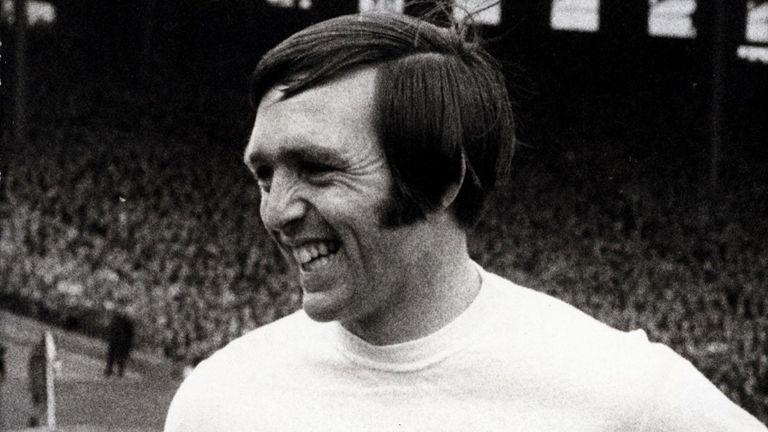Steve Thompson: Ex-England rugby player pledges brain to concussion initiative backed by Jeff Astle Foundation
Rugby World Cup winner and former Lion Steve Thompson will be the first professional athlete to pledge his brain to the Concussion Legacy Project, backed by the Jeff Astle Foundation; Thompson was diagnosed with dementia aged 42
Thursday 23 September 2021 12:58, UK
Rugby World Cup winner Steve Thompson has pledged to donate his brain as part of a new initiative backed by the Jeff Astle Foundation.
The partnership with Concussion Legacy Foundation UK will research Chronic Traumatic Encephalopathy (CTE) and other consequences of brain trauma in athletes and military veterans in the UK.
Thompson is the first athlete to pledge to the Concussion Legacy Project's "brain bank", with the former Lion previously admitting he cannot remember playing in England's 2003 World Cup final win over Australia.
- Dementia and the Boys of '66
- Steve Thompson: I can't remember World Cup final win
- Ex-pros call for review into heading and brain disease link
"I'm pledging my brain so the children of the people I love don't have to go through what I have gone through," said Steve Thompson, who was diagnosed with dementia at age 42.
"It's up to my generation to pledge our brains so researchers can develop better treatments and ways to make the game safer."
Thompson added to Sky Sports News on Thursday: "When the diagnosis first came out it was about not remembering the World Cup, but we've had a Lions tour since then, which upset me at times because with social media you start seeing players' shirt presentations before Tests.
"I thought, 'I must have done that', but I can't remember if I did or didn't do it. It's just not there. The way they explained it to me, your head is a camera and you just don't have a memory card. It's there, but you're just not recording it. That's what happened in that period of time when my brain would have been inflamed from the injuries."
The Jeff Astle Foundation was launched in 2015, 13 years after the former England and West Brom forward died of dementia in 2002.
Jeff Astle's daughter, Dawn Astle, has been campaigning for two decades for football's authorities to publicly recognise a link between the repeated heading of a football and dementia in later life and has supported around 200 families of former players living with dementia.
"Brain donation is the most valuable gift of all for future generations of footballers," Dawn Astle said.
"It may be many years before this jigsaw is complete, but by adding each piece, one at a time, it is the only way we shall understand the true picture and so be able to make a better future for others.
"The Jeff Astle Foundation encourages families of athletes and veterans to donate the brain of their loved one to the Concussion Legacy Project."
The Concussion Legacy Project will be led by Dr Gabriele DeLuca, Associate Professor in the Nuffield Department of Clinical Neurosciences, University of Oxford and Director of Clinical Neurosciences Undergraduate Education at Oxford Medical School.
"Brain donation will allow us to better understand the complexities of CTE so that we can develop tailored interventions and treatments to prevent its devastating consequences," said Dr. DeLuca.





